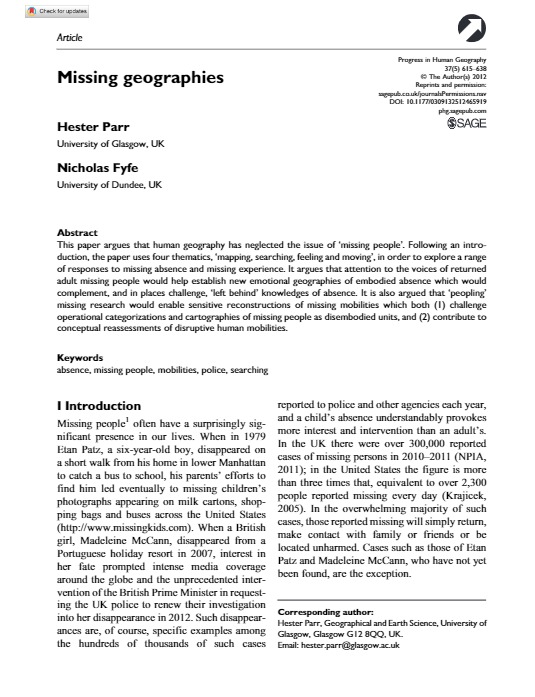
Missing geographies
This paper argues that human geography has neglected the issue of ‘missing people’. Following an introduction, the paper uses four thematics, namely mapping, searching, feeling and moving, in order to explore a range of responses to missing absence and missing experience. It argues that attention to the voices of returned adult missing people would help establish new emotional geographies of embodied absence which would complement, and in places challenge, ‘left behind’ knowledges of absence. It is also argued that ‘peopling’ missing research would enable sensitive reconstructions of missing mobilities which both (1) challenge operational categorizations and cartographies of missing people as disembodied units, and (2) contribute to conceptual reassessments of disruptive human mobilities.

